Our City
300 Days of Sunshine
Denver is known for its beautiful weather, sweeping views, excellent city life, and an array of outdoor activities courtesy of our proximity to the magnificent Rocky Mountains
The Pediatric Cardiology Fellowship Training Program began at the University of Colorado School of Medicine (CU SOM) Department of Pediatrics and Children's Hospital Colorado in 1971. Children's Colorado is a freestanding children's hospital with a full affiliation with the University of Colorado School of Medicine for training pediatric residents and fellows. Children’s Hospital Colorado is a top 10 best children’s hospital in the country and the Heart Institute is consistently ranked within the top 15 best programs in the United States.
We serve a diverse population from a large catchment area in addition to Colorado including Wyoming, Montana, North and South Dakota, Nebraska, Kansas, and New Mexico. The fellowship is fully accredited by the American Medical Association, the American Board of Pediatrics, and the Accreditation Council of Graduate Medical Education. The mission of our program is to prepare trainees for careers in academic pediatric cardiology. We accomplish this through a three-year program with substantial exposure to a broad spectrum of congenital and acquired heart defects and extensive time spent in active basic, clinical, translational research. We offer four or five categorical fellow positions a year.
To train and cultivate compassionate, driven, collaborative, dependable, knowledgeable, service-oriented change makers in the field of pediatric cardiology
Please visit the section “Fourth-Year Fellowships of Advanced Training” located to the left of this webpage for more information.
Our City
300 Days of Sunshine
Denver is known for its beautiful weather, sweeping views, excellent city life, and an array of outdoor activities courtesy of our proximity to the magnificent Rocky Mountains
Our Hospital
Ranked No. 1 in the Rocky Mountain Region
Children's Hospital Colorado consistently ranks in the top 20 on the US News Best Children's Hospitals Honor Roll and as the #1 Children's Hospital in Colorado and the Rocky Mountain region
Our Division
Nationally Ranked
The Heart Institute is one of the largest volume surgical centers in the country and is consistently ranked as a top pediatric cardiology program.
Clinical goals of our training program are to provide comprehensive training in all areas of pediatric cardiology practice. Fellows rotate primarily at Children’s Hospital Colorado, but will also spend time at University of Colorado Hospital and Denver Health Medical Center.
Under the supervision of a large and diverse faculty, trainees gain exposure to patients with a broad spectrum of clinical problems. Learning from direct patient care is augmented by a comprehensive series of lectures focused on congenital and acquired cardiology. Additional seminars provide training in communication, ethics, and practice administration. Fellows receive ample opportunities to learn the common procedures employed in cardiology.
Each year is broken down into 13 four-week blocks. Night float primarily occurs during research blocks and consists of Monday-Thursday coverage. Weekend coverage include Saturday and Sunday day shifts as well as Friday-Sunday night float. There are four weeks of vacation all taken during research blocks.
Most clinical activity during fellowship occurs at Children’s Colorado with some time spent at the University of Colorado Hospital during the ACHD and EP blocks, and clinic at Denver Health Medical Center during the outpatient block (also a site for continuity clinic). Each trainee will spend 24 blocks total on clinical service with 15 blocks of research time. There is some flexibility in the apportionment of clinical blocks and modifications to the block schedule can be made on an individualized basis.
All trainees are assigned to a continuity clinic, scheduled for one afternoon per week. Fellows interested in a longitudinal follow-up experience with individual patients are encouraged to schedule those patients in their assigned clinic afternoons. Additionally, trainees are invited to participate in outreach community-based cardiology clinics throughout the state of Colorado as well as Wyoming.
| 1st-year | 2nd-year | 3rd-year |
| Cardiac Progressive Care Unit | Consult Team | Cardiac Progressive Care Unit |
| Consult Team | Cardiac Intensive Care Unit | Consult Team |
| Cardiac Intensive Care Unit | Cardiac Catheterization | Cardiac Catheterization |
| Cardiac Intensive Care Unit | Echocardiography | Echocardiography |
| Cardiac Catheterization | Heart Failure / Transplant | Electrophysiology |
| Echocardiography | Outpatient Cardiology | Elective |
| Echocardiography | Adult Congenital Heart Disease | Elective |
| Echocardiography | Cardiac Progressive Care Unit/Clinical Elective | Research |
| Electrophysiology | Research | Research |
| Heart Failure / Transplant | Research | Research |
| Research | Research | Research |
| Research | Research | Research |
| Research | Research | Research |
Our Heart Institute is multi-state referral center and one of the large volume surgical centers in the United States. We have over 60 pediatric cardiologists on faculty and 4 pediatric cardiothoracic surgeons. Our pediatric congenital heart surgeons perform
around 800 surgical cases a year, making us one of the busiest surgical programs in the country. We perform around 30 stage one palliations (Norwood operation) each year, which is one of the highest volumes in the country. Our cardiac intensive care
unit has 22 beds and has over 5,600 patient admission days each year. Our cardiac progressive care unit (step-down unit) is a 40-bed unit with over 11,000 patient admission days per year. We are a regional cardiac transplant center and perform
around 20 heart transplants a year. In addition, we implant between 5-10 ventricular assist devices per year averaging more than 1,000 patient VAD days a year. We have a robust ECMO service and are an ELSO (Extracorporeal Life Support Organization)
ECMO Center of Excellence Platinum Level.
There are approximately 1,000 pediatric cardiac catheterizations performed per calendar year in our Heart Institute as well as around 300 electrophysiology cases per year. We are a regional referral
center for adult congenital heart disease and have over 2,400 ACHD outpatient visits each year as well as around 60 surgeries, 150 cardiac catheterizations, and 150 electrophysiology cases.
We provide approximately 24,000 outpatient
cardiology clinic visits each year between our main clinic at Children's Hospital Colorado as well as at our network of care sites and outreach clinics. The network of care sites are throughout the Denver metro area, and our outreach clinics are located
across the state of Colorado as well as Wyoming, Montana, and New Mexico. More than 30,000 outpatient and inpatient echocardiograms are performed and interpreted annually at Children's Hospital Colorado.
As with all aspects of clinical training, the program promotes progressive responsibility and increasing autonomy when covering overnight. All night float shifts are in-house and include continuity care of cardiac inpatients, cardiac consultations, and imaging requests overnight.
Coverage of the cardiac ICU overnight is either provided by a pediatric critical care fellow or a second in-house cardiology fellow. The number of night shifts are equally distributed among the 3 fellowship years. The incoming third year fellows and program leadership work together to create the yearly schedule, and this is published in the spring prior to the new academic year.
In addition to outpatient cardiology time during specialty rotations, all categorical fellows will spend 2-3 afternoon half-days a month in one of two fellow continuity clinics. This 3-year clinic experience provides our fellows with the opportunity to follow patients over time, helping them develop critical outpatient management skills through longitudinal care. Each fellow continuity clinic is staffed by two core preceptors that provide guidance and graduated outpatient autonomy over the course of 3 years.
Finally, we have a robust, multi-state outreach cardiology program which includes clinics across the state of Colorado as well as Wyoming, Montana, and New Mexico. These unique outreach clinics provide our fellows with high-yield and impactful opportunities to practice cardiology outside of a tertiary care center and are one of our fellows’ favorite experiences.Four weeks of vacation is allowed per year per ACGME policy. Vacation time is taken during research blocks.
Research training is a major focus of the fellowship training program and fellows are provided substantial protected time throughout their fellowship to engage in rich research experiences. The research program is designed to provide comprehensive scholarly training that prepares all trainees with the background and skills to successfully compete for academic faculty positions and extramural funding at the completion of their fellowship.
Although many cardiology fellows are mentored by a faculty member within the Division of Pediatric Cardiology, the program encourages fellows to consider a broad range of potential mentors. The program will assist in identifying potential mentors, both within the Department of Pediatrics and, when appropriate, from across the School of Medicine campus.
Research opportunities available to cardiology trainees are broad and varied. First year fellows are allotted three research blocks to explore various research opportunities early with the goal to start a project prior to completion of the first year of training. There are robust opportunities for clinical research within the multiple subspecialty sections. In addition to clinical research, there are many opportunities to pursue other types of research, including, but not limited to: translational and basic science research, outcomes research, quality improvement research, and medical education research.
Our division includes multiple NIH-funded clinician-scientists, along with numerous faculty whose research is supported by various grants. Research facilities are available throughout Children’s Hospital Colorado and the University of Colorado School of Medicine and include molecular biology laboratories, immunology laboratories, and perinatal research facilities among others. Finally, we are one of nine core sites for the Pediatric Heart Network (GATHER consortium with Washington University in St. Louis), allotting fellows a unique opportunity to participate in multi-institutional research and networking.
During the first block of assigned research time, a trainee will typically meet with several potential mentors to discuss possible research projects and become familiar with different research programs. In the case of a basic science program, the fellow may “shadow” in individual labs in which they are interested.
With the help of program leadership, the goal is for the fellow to choose a mentor and research project by the end of their second research block. Once a research project is chosen, a timeline for research activity is developed by the mentor and the trainee. Broadly, the goal for research projects is for the fellow to have made sufficient progress that they can consider submission of an abstract to a national meeting by the end of their second year.
In general, research time during the third year of fellowship should be spent finalizing the project with the goal for their scholarly work to be presented and a manuscript published.
The Colorado Clinical and Translational Sciences Institute is a collaborative enterprise between University of Colorado Denver, University of Colorado at Boulder, six affiliated hospitals and health care organizations, and multiple community organizations with resources to promote research and training that will advance health care and improve the public health.
The CCTSI was established in 2008 with funding from the Clinical and Translational Science Award (CTSA) initiative of the National Institutes of Health (NIH). Through the CCTSI, Clinical Translational Research Centers (CTRCs) have been established at several affiliated hospitals, including The Children’s Hospital, University of Colorado Hospital, and Denver Health Medical Center.
The CTRCs support research with clinical inpatient and outpatient space, inpatient research beds, nursing and research staff support, and core laboratory and nutrition services. To access CTRC resources, investigators submit a clinical protocol for review by the Scientific Advisory and Review Committee (SARC). The SARC review process gives investigators experience that may improve future COMIRB (Colorado Multiple Institutional Review Board) and grant applications.
The CTRC also offers biostatistical collaboration/consultation for study design, including sample size and power calculations, data analysis, and manuscript preparation. To fulfill its mission to train future researchers, the CCTSI offers ongoing comprehensive educational programs in several areas, including Informatics, Biomedical Ethics, Biostatistics, and Study Design. Biostatisticians are also available for consultation on individual research projects through the Colorado Biostatistics Consortium (CBC).
Each fellow is assigned a Scholarly Oversight Committee (SOC), composed of at least 3 faculty members. The SOC meets every six months to evaluate the fellow’s scholarly progress and to help provide support and direction. At the end of training, the SOC is responsible for determining whether the fellow’s work has met the American Board of Pediatrics requirement for sub-board eligibility.
There are daily afternoon lectures (Monday, Wednesday, and Thursday) at 4 pm with the first two months dedicated to our core lecture series (Monday-Friday). Lectures are given by various faculty members and are dedicated to various sub-specialty topics including cardiac catheterization, electrophysiology, imaging, heart failure/transplant, exercise physiology, and outpatient cardiology topics. In addition, the weekly cardiac ICU lecture series occurs on Wednesdays at noon.
Weekly Book Club occurs on Thursdays and is run by the cardiology fellows. Different chapters from Moss and Adams are divided among the fellows at the beginning of the year. A faculty mentor is assigned for each chapter and available for discussion and questions for the fellow preparing the chapter.
In addition to book club, several sub-specialties have journal clubs throughout the year often discussed outside of working hours at a faculty’s home. These are excellent opportunities for the fellows to meet with the staff on an informal basis to discuss pediatric cardiology topics.
Board review sessions organized by faculty members occur every 6-8 weeks. These sessions focus on high-yield content and utilize an audience response system with board style questions.
A weekly pediatric cardiac surgery case conference is held at Children's Hospital Colorado on Friday mornings at 7:30 am. Surgical cases for the upcoming week are presented as well as several discussion cases. The cases are prepared and presented by the cardiology fellows with active input from both cardiac surgery and pediatric cardiology faculty.
In addition to the clinical case, relevant imaging studies and cardiac catheterization data are presented and reviewed. Each week, the cardiology fellow presenting is paired with a faculty member who is available for questions and review prior to Friday morning.
The Heart Institute's weekly lecture series occurs on Tuesday afternoon at 4 pm and includes Morbidity and Mortality, Quality Improvement and Outcomes, and other division-wide updates and talks. In addition, we host a biannual Pediatric Cardiology
Grand Rounds, featuring invited speakers from other institutions. Fellows also have dedicated time to engage with these visiting experts during their visit
This educational series was developed to address areas of scholarly interest common to all pediatric core fellowships. Fellows attend 5-6 half-day seminars spread across their 3 years of fellowship. Attendance is mandatory and the trainee is excused from clinical responsibilities. In addition to providing core educational material, these sessions allow trainees in different disciplines throughout the department to meet and interact with one another in an informal and collegial environment.
Topics for this curriculum: Pediatric Fellowship Educational Series
Formal introductory instruction in biostatistics is give during the second year of fellowship through a 6-session, 12-hour biostatistics course that is taught by a PhD biostatistician. In addition, fellows have access (in-person or online) to regular biostatistics seminars which are provided by the CCTSI.
Trainees who undertake advanced graduate coursework with a biostatistics component (Masters in Public Health or Masters in Clinical Science) may be exempt from the introductory course.
Although not required for completion of the fellowship, some trainees pursue additional graduate coursework during their fellowship. The University of Colorado School of Public Health, which is on the Anschutz Medical Campus, offers a Masters of Public Health. The University of Colorado Denver Graduate School offers a graduate program in clinical science, which awards a Masters of Science in Clinical Science (MSCS).
This program provides training in clinical sciences through theoretical and methodological coursework and its application to an individual research project. Funding for additional graduate coursework is not guaranteed, but may be available on an individual
basis.
Cardiology fellows are encouraged to attend regional and national scientific meetings throughout their fellowship. Meetings commonly attended by cardiology fellows include American Heart Association, American College of Cardiology, American Society of Echocardiography, International Society for Heart and Lung Transplantation, Pediatric Cardiac Intensive Care Society, and the Western Society of Pediatric Cardiology (WSOPC).
To support academic development, the section supports attendance to national meetings for 2nd and 3rd year fellows. Fellows are encouraged to submit at least one abstract per year. In addition, the section supports travel to any national meeting for which the trainee has an abstract accepted.
The University of Colorado’s School of Medicine, the Children’s Hospital Colorado, and the Heart Institute believe that diversity is a value that is central to their educational, research, service and health care missions.
We are committed to working towards equity and justice for all. With this goal in mind, the Heart Institute created a Diversity, Health Equity, and Inclusion workface that includes over 40 members and represents every discipline within the H.I. including fellows, faculty, nursing, pharmacy and research staff.
The workforce has 7 subcommittees, including:
The vision of the Heart Institute DHEI Task-work is as follows:
Training at the University of Colorado provides the opportunity to care for an incredibly diverse population of patients and families. As the regional referral center for the Mountain West, Children’s Hospital Colorado and the Heart Institute regularly serves children from urban and rural areas in multiple states including Colorado, Wyoming, Montana, New Mexico, Nebraska, Kansas, and North and South Dakota.
The Denver Metro Area is home to a diverse and vibrant array of people from all racial, ethnic, socioeconomic, religious, and cultural backgrounds. Denver is one of the fastest-growing cities in the United States with a city population of over 700,000 and over 3 million in the metropolitan area.
Approximately 1 in 6 Denver residents was born in a country other than the United States and over 40% of children in Denver speak a language other than English at home. The population of Denver is approximately 1% Native American, 5% Asian, 12% Black, 50% non-Hispanic White and 32% Hispanic/Latinx. In the three-zip-code region surrounding the Children’s Hospital Colorado, 77% of residents belong to racial and ethnic minorities.
In addition, Denver ranks among the top 10 cities in the United States for the highest proportion of residents who identify as LGBT.
|
Why did you decide to pursue pediatric cardiology?
I was born with CHD (critical aortic stenosis, bicuspid aortic valve, and aortic coarctation). I had several balloon valvuloplasties, a coarctation repair in infancy, and the Ross procedure during the second year of residency. I am alive because of the successful interventions performed by my pediatric cardiologists and surgeons. Their impact motivates me to do the same for other children.
Why did you choose to train at Children's Hospital Colorado?
I've personally been a patient at Colorado Children's and believe in their care. Fellows see a large volume of patients with a broad range of cardiac pathology. Also, I'm from Colorado, so it's great to finally be close to my family and the mountains.
What are your hobbies and what do you like to do in your spare time?
Backpacking, hiking, camping, riding bikes, snowboarding, doing yoga, any outside activity with my husband, baby and toy poodle, listening to podcasts |
|
From my very first month of internship, my most gratifying patient encounters have been co-managing complex cardiac patients - the relationships with families and ability to make a big difference in a child’s life drew me to the cardiology field early. After residency, I have been assigned to three US Air Force bases over eight years as chief resident, outpatient pediatrician, and Hospitalist; throughout that time, I have been eagerly awaiting the chance to train in pediatric cardiology. I am enthusiastic to finally get the opportunity and to bring the lessons from pediatric cardiology fellowship back to Air Force pediatric GME in the future. Why did you choose to train at Children's Hospital Colorado? Air Force pediatric cardiologists work as independent pediatric cardiologists and as support for a far-flung network of pediatricians at bases across the globe. Children’s Hospital Colorado is one of only a few programs that has isolated extension clinics and a wide catchment area - perfect preparation for future assignments. I also got the opportunity to interact with Children’s Colorado during work as a pediatrician in Montana and knew the program’s stellar reputation is well deserved. What are your hobbies and what do you like to do in your spare time? When I’m not taking care of kids and babies, I like spending time with my wife and five kids, whether at the beach, camping and hiking in the mountains, or playing board games (the Exploding Kittens game gets heated!). I also love learning new things: lately, I’ve been learning to crochet and reading about geology. |
|
|
|
|
|
|
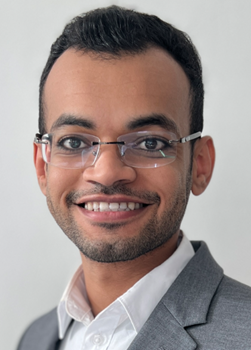 |
Why did you decide to pursue pediatric cardiology?
I chose pediatric cardiology because of the tremendous joy found in learning and understanding the anatomy and hemodynamics of congenital heart disease. It is intellectually stimulating and rewarding to work alongside a collaborative team that shares the one goal of providing the best care possible for our patients. Pediatric cardiology offers an extraordinary privilege to care for patients in various clinical settings, including the ICU, Cath/EP lab, and outpatient clinic. All these dynamic aspects have solidified my interest in pediatric cardiology.
Why did you choose to train at Children's Hospital Colorado?
The main reason for choosing Colorado Children for my training is the palpable sense of camaraderie among faculty and fellows, as well as the program’s strong emphasis on the educational and professional growth of the fellows. In addition, the opportunity to train in a high clinical volume and acuity program is invaluable.
What are your hobbies and what do you like to do in your spare time?
In my spare time, I love playing soccer and spending time with friends. Recently, I started bowling as a new hobby, and the results are still pending. The next adventure is learning to ski!
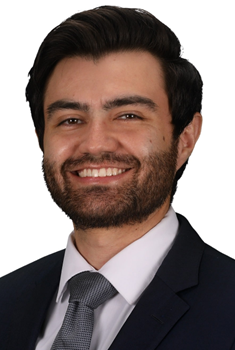 |
Why did you decide to pursue pediatric cardiology?
I decided to pursue cardiology because it perfectly fits the Venn diagram of my interests. I enjoy the physics behind the physiology and the fact that some of the defects really require an understanding of the basics. This, coupled with pediatrics, a patient population that embodies resilience and joy day in and day out, made me decide this is where I want to spend my career.
Why did you choose to train at Children's Hospital Colorado?
I liked the idea of having a wide catchment area that would expose me to as many pathologies as possible during my training, and the interview day sealed the deal. I really enjoyed talking with everyone I met, and they seemed to be genuinely interested in hearing my story and would support me in my personal, professional, and educational career. Plus, I couldn't find a more beautiful backdrop to a city.
What are your hobbies and what do you like to do in your spare time?
I love spending my free time with my wife and daughter. We love trying to discover new things to do or new places to eat, and we love being out and about in nature. I like video games, books, and water skiing, and I look forward to adding snow skiing to my list of abilities.
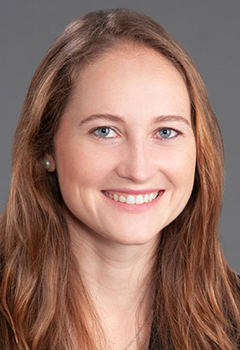 |
Why did you decide to pursue pediatric cardiology?
I have always enjoyed learning the physiology and variety of conditions in pediatric cardiology. I am also interested in preventive cardiology and/or learning more about improving the quality of life of patients with known CHD. I think the close relationships that pediatric cardiologists have with patients and their families is also rewarding and I strive to have this in my future career.
Why did you choose to train at Children's Hospital Colorado?
This program has a large volume and variety of cardiac conditions from which to learn, aided by the large catchment area that it serves. The faculty here are wonderful teachers and prioritize trainee learning in all clinical aspects, encouraging a lot of hands on learning. Lastly, Denver is a great place to live with many days of sunshine and activities I enjoy doing outside of work!
What are your hobbies and what do you like to do in your spare time?
I enjoy getting outside on walks near Congress Park, biking, hiking and skiing. I enjoy warmers days at the parks nearby and hanging out on my balcony with my two cats, George and Enzo. My long distance partner and I love to explore nearby restaurants and getting out to the mountains!
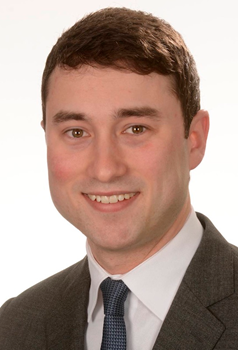 |
Why did you decide to pursue pediatric cardiology?
My first exposure to the field was as a patient (I had a VSD repair when I was two years old). Later, I worked with an Israeli organization called Save a Child’s Heart, which inspired me to apply to medical school with the intent to become a pediatric cardiologist.
Why did you choose to train at Children's Hospital Colorado?
I chose Children’s Hospital Colorado because of the great faculty and fellows, high quality training, excellent research opportunities, and to be near friends and family in the Denver area.
What are your hobbies and what do you like to do in your spare time?
In my spare time I like to play basketball, play guitar (poorly), and listen to audiobooks. Also, I cannot wait to ski on a more regular basis!
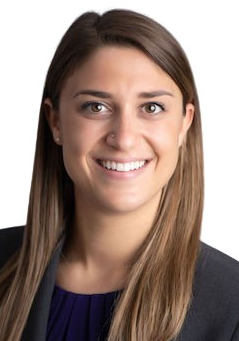 |
Why did you decide to pursue pediatric cardiology?
As a teenager, I developed an interest in pediatric cardiology after being diagnosed with two mild cardiac conditions. I developed a strong bond with my pediatric cardiologist which inspired me to pursue a career supporting other kids and their families facing similar challenges. Throughout medical school and residency, I found great fulfillment in caring for pediatric cardiology patients across different settings and levels of acuity. I also valued the collaborative approach involved in diagnosing and treating patients with complex physiology using various imaging modalities and innovative technology.
Why did you choose to train at Children's Hospital Colorado?
Not only did I know that I would receive excellent exposure and training from wonderful faculty at Children's Hospital Colorado, but I also knew that I would be supported to pursue my passions for global health and caring for underserved populations through opportunities to go abroad and participate in outreach programs. It's also hard to beat the proximity to outdoor recreational activities in such a beautiful and sunny state like Colorado.
What are your hobbies and what do you like to do in your spare time?
I love being active and spending time outdoors, especially hiking, running, swimming, yoga, and participating in intramural sports. I also enjoy traveling, cooking, and spending time with friends and family (preferably with good food and beverages involved). My creative outlets include writing, photography, and videography. I'm also a big Michigan football fan; Go Blue!
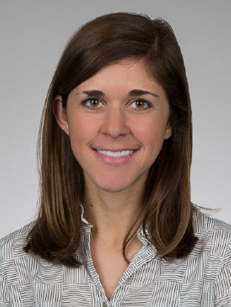 |
Why did you decide to pursue pediatric cardiology?
I always wanted to go into cardiology but fell in love with pediatric cardiac physiology in medical school and quickly learned that I love working with kids. I have a special interest in pediatric obesity prevention and treatment and completed a pediatric obesity medicine fellowship at the Children's Hospital of Richmond and plan to ultimately specialize in preventive cardiology.
Why did you choose to train at Children’s Hospital Colorado?
I'm not sure yet, but I am looking forward to working with an incredible group of people, including leaders in the preventive cardiology field!
What are your hobbies and what do you like to do in your spare time?
I love to do anything outside. I own 3 bikes and keep adding to the collection for commuting, cycling, and mountain biking. I also love running, hiking, camping, wildflower hunting, gardening, and cooking. I am really looking forward to finding new wildflowers in Colorado!
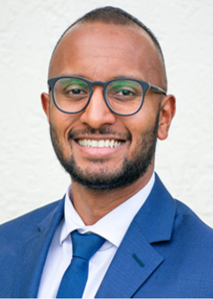 |
Why did you go into pediatric cardiology?
The advancements made in the field of pediatric cardiology have been so impressive. Patients are provided better treatments and interventions, affording them an increasingly higher quality of life, which is incredibly gratifying to us as providers. Each individual patient's congenital heart disease is unique, and I love being a part of the multi-disciplinary, team-based approach to determine the best solution for each particular case. Lastly, the relationships you establish with patients and their families are so special and can be lifelong.
Why did you choose to train at Children’s Hospital Colorado?
It was clearly evident on interview day that not only was I going to be a part of an excellent Heart Institute, but that I was also going to be working with a supportive faculty that was passionate about fellow education and that would push me to become the best cardiologist I could be.
What are your hobbies, and what do you do in your spare time?
I love all things basketball, exploring new restaurants, and finding the best places for trivia night!
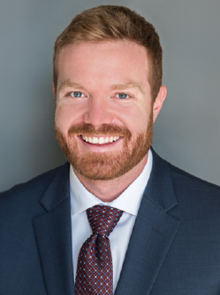 |
Why did you go into pediatric cardiology?
I fell in love with pediatric cardiology because of the ability to take care of infants and children across a broad range of acuities and clinical settings. The complex anatomy and physiology are fascinating and truly lead to caring for each patient as an individual. No two cases of congenital heart disease are identical, nor are the needs of two different patients or their families. Providing care with an emphasis on addressing unique needs is one of my favorite aspects of the field.
Why did you choose to train at Children’s Hospital Colorado?
There are so many reasons I chose to train at Children's Hospital of Colorado but some of the standouts are the focus on fellow education/professional development and the down to earth nature of the faculty I met with. Everyone is so dedicated to helping fellows achieve their personal goals in the setting of a high-volume program with a huge catchment area and complex patient population that provides an outstanding base for all fields of cardiology.
What are your hobbies, and what do you do in your spare time?
My ever-growing list of hobbies includes mountain biking, skiing, golfing, fly fishing, backpacking and hiking with our dog, cheering on the Brisbane Lions, and searching for the perfect beer garden.
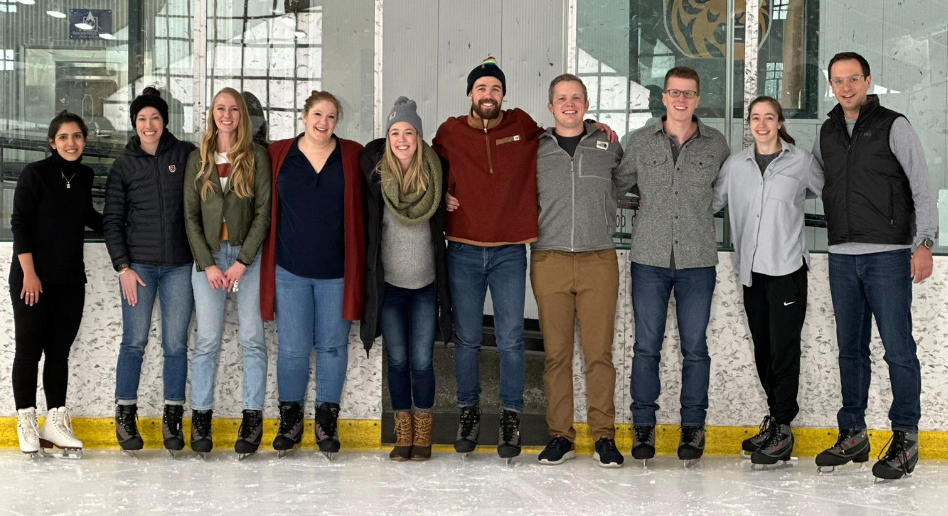
Our pediatric fellowships will be conducting virtual interviews for this upcoming interview season. We will be interviewing to fill four or five categorical fellowship spots for the 2027 academic year.
We look forward to sharing our programs with you and getting to know more about you. We will send interview offers out mid-August as well as a list of interview dates in September, October, and early November. These will be filled on a first-come, first-serve basis.
If you have questions about the application process, please feel free to reach out to our program coordinator! (Amanda Keith: [email protected] )
We particularly hope to attract applicants who are motivated and self-directed learners who want to develop academic careers based on excellence in research, scholarship, and clinical pediatric and adult congenital cardiology. To be considered for admission to our program, applicants must have successfully completed training in a 3-year ACGME-accredited residency program in Pediatrics.
The Pediatric Cardiology Fellowship utilizes ERAS - Electronic Residency Application Service (ERAS).
We participate in the National Residency Matching Program (NRMP) and do not offer any positions outside of the match. The application should include a copy of your curriculum vitae, at least 3 letters of reference (maximal of 4), a personal statement highlighting why you wish to become a pediatric cardiologist, and your USMLE or COMLEX score reports. In addition, please have your letter writers fill out the Pediatric Cardiology Fellowship Evaluation Form and attach it to the end of their letter of recommendation. If you are not a US citizen, include a copy of your ECFMG report with ERAS. Please bear in mind that you would need to acquire a J1 visa if selected as a candidate for our program.
Incomplete or late applications will not be considered. It is your responsibility to ensure all required information has been received.
| Date | Activity |
| Monday, May 31, 2026 | ERAS 2026 season ends at 5 p.m. ET. |
| Wednesday, June 3, 2026 | ERAS 2027 season begins at 9 a.m. ET. |
| Thursday, June 4, 2026 | EFDO will release tokens to fellowship applicants. |
| Wednesday, July 1, 2026 | July cycle fellowship applicants may begin submitting applications to programs at 9 a.m. ET. |
| Wednesday July 15, 2026 | July cycle fellowship programs may begin reviewing applications at 9 a.m. ET. |
| May 31, 2027 | ERAS 2027 season ends at 5 p.m. ET. |
| Dates | Activity |
| Wednesday, August 26, 2026 | Match Opens |
| Wednesday, September 30, 2026 | Ranking Opens |
| Wednesday, October 28, 2026 | Quota Change Deadline |
| Wednesday, November 18, 2026 | Rank Order List Certification Deadline |
| Wednesday, December 2, 2026 | MATCH DAY |
The University of Colorado offers salary and benefits packages that are competitive with other fellowship programs across the country. Current salary levels can be found at the School of Medicine – Graduate Medical Education Stipends.
The Mile High City is nestled at the eastern base of the Rocky Mountains and is the largest city in the region with a population of over 2.7 million. Denver enjoys one of the best climates in the country, with 300 days/year of sunny skies. Although it snows in the winter, the snow melts quickly and temperatures are usually moderate. Hot summer days give way to cool summer evenings.
The city is the home to dozens of highly rated restaurants and a vibrant nightlife. The city attracts many outdoor enthusiasts with its extensive system of hiking and bike trails and the largest city park system in the country. The Denver Center for the Performing Arts is the largest performing arts complex under one roof in the country and attracts many of the top national theater tours each year. Red Rocks Amphitheater, a natural amphitheater in the foothills west of town, attracts the nation’s top touring musical talent throughout the summer.
Denver is home to the Denver Broncos (NFL), the Denver Nuggets (NBA), the Colorado Rockies (MLB), the Colorado Avalanche (NHL), the Colorado Rapids (MLS) and the Colorado Outlaws (MLL).
The University of Colorado, the state flagship school and a world-class educational institution, is based in nearby Boulder. In addition, Denver is the gateway to the Rocky Mountains, which offer abundant recreational and sightseeing opportunities year round. The state of Colorado is home to over 20 major ski areas, many of which are within 2 hours of the city.
In accordance with the University of Colorado Anschutz Medical Campus, we will be conducting our 2025 interviews virtually over zoom. We are so excited to meet you (virtually!) and help you get to know our program.
Below you will find the schedule for your interview day. In addition, we hope you will be able to attend one of the virtual “happy hours” with the fellows to learn more about our program and fellows in a more informal setting. (You will receive a separate email from the fellows about this)
8:00 – 9:50 am | Program overview with Dr. Scahill & Dr. SooHoo |
8:50 – 9:00 am | Break |
9:00 – 10:15 | Three 20-minute interviews |
10:15 – 10:45 am | Break |
10:45 – 12:00 pm | Three 20-minute interviews |
12:00 – 1:00 pm | Meet with the fellows |
1:00 – 1:15 pm | Wrap-Up with Dr. Scahill and Dr. SooHoo |
We hope our interview day is comprehensive and displays the expertise and scope of our Heart Institute, emphasizes our excellent faculty and fellows, and highlights the facets of our training program that are unique to Colorado. We are very proud of the quality of our fellowship program and fellows that we train - and we hope it shows! If you have further questions that arise after your interview day or are curious about specific opportunities at our program – please reach out to Carly, Megan, or Amanda! Our intent is to match well-suited candidates and provide exceptional training with the goal to graduate future leaders in pediatric cardiology. Good luck this interview season!
Please contact with questions:
Amanda Keith, Fellowship Program Coordinator at (720)-777-2940 or [email protected]
Carly Scahill, Program Director: [email protected]
Megan SooHoo, Associate Program Director: [email protected]